A countdown of the top 20 products and technologies that try harder.
20. Quarterdeck DESQview
19. Trackballs
18. ReplayTV
17. Digital Research GEM
16. Microsoft Zune
15.
Aldus Altsys Macromedia Adobe FreeHand14. Powerline (HomePlug) Networking
13. Sonic the Hedgehog
12. Radio Shack TRS-80 Model I
11. FireWire
10. Reverse Polish Notation
9. The Dvorak keyboard
7. Apple Macintosh
6. OS/2
5. Amiga
4. Linux
2. AMD
1. Mozilla Firefox
Top 20 Tech Underdogs
Rocky. The Chicago Cubs. Charlie Brown. Avis, back when its whole schtick centered on being America's #2 rental car company. America loves its underdogs-and the technology business has always been home to a disproportionate number of exceptionally lovable underdogs. They may never achieve market leadership, but without them, the tech in our lives would be less interesting, innovative, and inspiring.
So what is an underdog? Merriam-Webster says it's a "loser or predicted loser in a struggle or contest" or a "a victim of injustice or persecution." For this list, I'm using a somewhat different, tighter definition.An underdog, first of all, must be good-maybe better, in fact, than its more successful rivals. It should have a cult of intensely loyal fans. (Many of the products we're about to discuss have fan bases that can be a little scary-you know who you are.) And it helps if it's successful enough that it hangs around for awhile. (Some of the contenders we're about to ponder have been underdogs for decades.)
Many tech underdogs end up triumphing, such as every behemoth of a corporation that was founded in a garage or a dorm room--Dell, Google, HP, Microsoft, and many others. You lose any claim on underdogship the moment you come to dominate your market. But I did include some items that started out dominant, and then were toppled by underdogs, thereby becoming underdogs themselves.
I considered dozens of contenders to come up with the twenty that made the cut for this article. I've ranked ‘em in terms of overall significance. Take a gander-then tell me about the products, companies, and technologies that I should have mentioned but didn't.
(See also "As the PC World Turned," a 25-year retrospective of industry events and "Readers Report: The Products You Miss Most.")
What it was: A DOS enhancement, released in 1985, that let you run multiple applications at once in movable, resizable onscreen windows.
Underdog to: Microsoft Windows, which debuted later the same year.
Notable virtues: It let typical PCs of the era multitask existing DOS apps quickly and reliably at a time when multitasking was a sexy new idea and Windows was still profoundly crude.
What made it an underdog: For one thing, it's no great shock that Microsoft had an built-in advantage when it came to building multitasking interfaces on top of its own DOS. And compared to the fancy (for the 1980s) graphics sported by Windows, DESQview had a no-frills, text-oriented feel; that's one of the things that its fans loved about it, but it also gave it less sizzle.
Random factoid: DESQview started as a clone of IBM's TopView, an unsuccessful, even less flashy DOS multitasker.
What they are: A pointing device with a ball you spin with your fingertip-sort of the same idea as the original mechanical mouse, only upside-down.
Underdog to: Mice (with desktop PCs) and touchpads (with laptops).
Notable virtues: Trackballs make efficient use of desk space and are unbeatable for Missile Command. But as with all input devices, it's mostly a matter of personal preference.
What makes them an underdog: Their brief moment of glory came in the early 1990s, when they were the dominant form of pointing device for notebooks-but they were soon nudged back into underdog status by touchpads. Other than that, they've a classic tech underdog: something that's been passionately adopted by a really small group of people. (Including me: They're my choice of pointing device for desktop PCs, and if Apple sold a MacBook with a trackball, I'd probably buy it.)
Random factoid: The first trackball was invented in 1952 by the Royal Canadian Navy, and used a...bowling ball.
What it was: One of the first digital video recorders (DVRs) to bring truly simple, powerful recording of TV programs to consumers.
Underdog to: TiVo, which debuted more or less simultaneously in 1999.
Notable virtues: Excellent user interface; made it a cinch to skip commercials (one version even did it automatically); first version carried no monthly service charge.
What made it an underdog: That original pricing model-you paid one flat fee for a box and lifetime service-made it a far costlier gizmo than TiVo, which subsidized the cost of the box but made you pay a monthly fee. Lack of an adorable mascot probably didn't help, either.
Random factoid: Replay founder Anthony Wood later formed Roku, maker of a nifty video streaming device.
What it was: A graphical environment, debuting in 1985, that provided a Mac-like windowing interface for DOS and the Atari ST.
Underdog to: Microsoft's similar Windows, of course, and to some degree the Mac itself.
Notable virtues: Early in its existence, it was arguably a better way to turn a PC into a pseudo-Mac than Windows; it provided Atari computers with a decent interface into the 1990s.
What made it an underdog: All Digital Research products were underdogs to all vaguely comparable Microsoft products, for one thing. Also, Apple sued Digital Research over the PC version of GEM's more-than-passing resemblance to the Mac, forcing a new version of GEM that was less Maclike and probably less appealing.
Random factoid: Like all defunct operating systems and environments, GEM isn't completely defunct. It eventually ended up as an open-source application dubbed FreeGEM, available in distributions such as OpenGEM. Windows 7 it's not, but it's still capable of running on ridiculously underpowered old computers. As far as I can tell, though, things have been pretty quiet in GEMland over the last few years.
What it is: Microsoft's line of portable media players, starting with a hard-disk MP3 player in 2006 and currently focused on the new Zune HD.
Underdog to: The audio players made by a Cupertino, California company named after a piece of fruit.
Notable virtues: The new Zune HD has plenty of them-a slick user interface, a solid subscription-music service, HD radio support, and more. It's not a pocket computer or an app platform, but on its own terms, it's neat.
What makes it an underdog: The fact that Zune was from Microsoft made comparisons to the iPod inevitable, and inevitably made the Zune look bad; Zune sales (at least until the HD came out) have been pretty pitiful; a bizarre and embarrassing bug prevented all the 30GB Zunes from working on December 31st of last year. Zunes have always seemed like responses to iPod trends that Apple has already largely moved on from-hard-disk players, then simple flash-based ones, then touch-screen ones that don't run third-party apps. Also, I think the name doesn't help-it reminds me of the easy-to-make-fun-of malt beverage Zima and sounds nerdy rather than cool-the gadget equivalent of being a kid named Poindexter.
Random factoid: The first Zune had the pre-release code name of Argo, which might not have been a bad final moniker.
Underdog to: Adobe Illustrator (and, to a much lesser extent, CorelDraw).
Notable virtues: FreeHand had a reputation for having a much better interface than Illustrator; it also sported features such as multiple-page documents and sophisticated text handling years before Adobe got around to adding them.
What made it an underdog: Well, any graphics package that competes against something similar from creative-app behemoth Adobe is an underdog almost by definition. FreeHand also faced the challenge of revolving-door ownership: It was originally produced by Altsys, who licensed it to Aldus until that company was bought by Adobe in 1994, whereupon Altsys got it back until it was acquired itself by Macromedia in 1995. Macromedia was bought by Adobe in 2005; it's no shocker that that company's main interest in FreeHand lay in trying to get its users to switch to Illustrator. Like Aldus's PageMaker, FreeHand lives on in old-software limbo: It's still for sale (and still used by loyal fans), but will never get another upgrade.
Random factoid: Just last September, FreeHandinistas founded a group called FreeFreeHand.org. Its goal: to assure a future for FreeHand by convincing Adobe (who the site doesn't mention by name) to upgrade it or open-source it. But if that doesn't work, the group says it would like to revive FreeHand's fortunes through legal action.
What it is: A home networking technology that uses your house's electrical wiring to transmit data from room to room.
Underdog to: Wi-Fi and, to a lesser extent, plain old Ethernet via CAT5 cable.
Notable virtues: Exceptionally easy installation; reliable; with products that use the HomePlug AV spec, an impressive maximum theoretical performance of 189Mbps.
What makes it an underdog: You know, I'm not entirely sure. And neither are networking-gear manufacturers -- I've met more of them than I can count who like powerline and can't figure out why consumers don't. Wi-Fi has a hipness that powerline doesn't -- wireless is inherently cooler than wired-and Wi-Fi has the benefit of being a logical technology to build into laptops. (Powerline presumes that the devices that use it are sitting in a fixed location near a power jack.) Also, reviews of HomePlug AV products aren't always glowing.
Random factoid: HomePlug Command & Control, a variant designed for home automation applications, was ratified by the HomePlug Powerline in Alliance in 2007 but seems to pretty much be in limbo, as far as I can tell.
Who he is: The star of an eponymous 1991 Sega videogame -- and the company's corporate spokescritter to this day.
Underdog to: Nintendo's Mario (aka Super Mario, aka Dr. Mario), the much better known videogame star with whom Sonic maintains an apparently friendly rivalry. If Mario is the Mickey Mouse of the gaming world, Sonic is...well, let's say its Mighty Mouse. No, make that its Woody Woodpecker.
Notable virtues: He's really, really fast.
What makes him an underdog: He's associated with Sega, an underdog of a company that was forced to exit the hardware business in 2001 and become a software publisher. Also, he doesn't have the good fortune to have been created, as Mario was, by the greatest videogame developer of all time.
Random factoid: Sonic is most likely the only video game character ever to have a mammalian protein named in his honor.
What it was: Along with the Apple II and Commodore Pet 2001, one of the holy trinity of personal computers that debuted in 1977.
Under dog to: Mostly Apple's vastly more glamorous Apple II. By comparison, the TRS-80 was the poor kid from the wrong side of the tracks. (Maybe Radio Shack should have worn its downmarket reputation as a badge of honor and done "I'm a TRS-80? TV commercials.)
Notable virtues: Radio Shack's thousands of mall stores made it the most widely-marketed computer of its era; spawned an impressive ecosystem of third-party software and hardware; became the subject of the first platform-specific computer magazines.
What made it an underdog: The Model I had a low-resolution black-and-white graphics and no sound; it was sheathed in a gray plastic case that looked clunky even in the 1970s; it had an embarrassing hardware defect known as keybounce. And it was marketed by Radio Shack, a company that was (and is) square to its core. Eventually, it was saddled by the derisive nickname "Trash-80," which makes me gnash my teeth to this day.
What it is: A connectivity standard originally developed by Apple in the 1990s and later adopted as an industry standard under the moniker IEEE 1394.
Underdog to: The phenomenally successful Universal Serial Bus, in multiple variants -- from the long-ago 1.0 to the nascent 3.0.
Notable virtues: FireWire 400's data transfer speed (400-Mbps) is theoretically slower than USB 2.0's 400-Mbps, but FireWire devices are often faster in the real world; FireWire 800 is faster still. It's excellent for digital video, too. And I know people who swear by FireWire hard drives.
What makes it an underdog: FireWire was originally a costlier technology to implement than USB, so fewer PC manufacturers included it, giving peripheral manufacturers less incentive to support it. Result: Vicious circle of middling industry support. FireWire 800 never caught on in the PC domain at all. (There's probably a good reason why it uses a different connector than FireWire-400, but I don't know what it is.) Branding confusion probably didn't help, either -- FireWire is a cool name, but IEEE 1394 is positively yawn-inducing, and Sony insisted on calling its version of the technology by still another name, i.Link.
Random factoid: According to Wikipedia, the Space Shuttle uses FireWire 800 "to monitor debris (foam, ice) which may hit the vehicle during launch."
What it is: A method of arithmetic notation which places the operator after the numbers it affects -- such as "5 3 +". Achieved brief mainstream success in HP's desktop and pocket calculators of the 1970s and 1980s .
Underdog to: Infix notation -- what we all use even though we don't know what it's called -- which puts the operator in between the numbers ("5 + 3?).
Notable virtues: Once you understand RPN it's easy to parse and doesn't require parentheses; useful in programming languages and other computer science applications.
What makes it an underdog: Its unfamiliarity, basically; as with the Dvorak keyboard (see below), it doesn't matter if an idea is superior if it's not the one that's taught in schools, used in existing equipment, and otherwise pervasive.
Random factoid: Until I wrote this article, I'd always assumed that RPN was invented in Poland, but it was an Australian named Charles Hamblin who proposed it in the late 1950s. The "reverse Polish" means that it's the opposite of the prefix notation devised by Poland's Jan Lukasiewicz circa 1920.
What it is: An alternative keyboard layout, patented by August Dvorak and Wiliam Dealy in 1936; no relation to composer Antonin Dvorak orvenerable tech pundit John C. Dvorak.
Underdog to: QWERTY, the typewriter keyboard layout devised byChrispher Shoales in 1873 and still in use on the vast majority of the world's devices that involve input of alphanumeric information.
Notable virtues: Dvorak was designed to be less tiring than QWERTY, and the people who like Dvorak swear by it; adopting it puts you in the company of celebrities such asPiers Anthony.
What makes it an underdog: QWERTY may stink, but it's the layout that nearly every device uses, and the one nearly everyone learns. And while today's operating systems support the DVORAK layout, you need to buy a special keyboard or pry off your PC's keys and rearrange them. There are even those who'll go so far as to unlock their iPhones to give them a Dvorak keyboard. In short, you need to work really hard to become a Dvorak user.
Random factoid: Lilian Malt's Dvorak rival the Maltron keyboard is the underdog of underdog keyboard layouts.
8. WordPerfect
What it is: The venerable word processor, created by Alan Ashton and Brian Bastian, that was the industry leader in the mid- to late 1980s and early 1990s.
Underdog to: It started out as an obscure upstart in the WordStar era, but for many years it's played underdog to Microsoft Word.
Notable virtues: Version 5.1 was one of the single greatest versions of any application ever; still beloved by many for Reveal Codes and other features which provide precise control over a document's look and feel; still widely used by government agencies and law firms (the FTC's release on its new guidelines for bloggers makes reference to a document in WordPerfect's WPD format). For many years, WordPerfect was a lower-cost alternative to Microsoft Office, but Microsoft's cheapie Office Home and Student Editionseems to be a direct response to WordPerfect's budget pricing.
What makes it an underdog: Once a dominant product in a category loses its dominance, it's by definition an underdog. WordPerfect spent most of the 1990s suffering from ill-fated decisions by its owners: it was slow to hop on the Windows bandwagon, and slow to evolve from a standalone product into a component of a suite. Being sold twice in two years (first to Novell, then to Corel) didn't help, either -- especially since Microsoft was busy tying the bundling of Word on new PCs to sales of Windows.
Random factoid: In 2008, WordPerfect cofounder Bastian gave $1 million to fight California's anti-gay marriage Proposition 8 while his cofounder Ashton gave $1 million to support it.
What it is: A computing platform introduced by Apple in 1984 -- and hey, unlike most platforms of the 1980s, it's still with us to this day.
Underdog to: The PC, in all its guises over the past quarter-century, from the IBM PC to "PC compatibles" to Windows 7 machines.
Notable virtues: The first popular computer with a graphical interface and a mouse; exceptional industrial design; often early to adopt new technologies such as Wi-Fi; has usually sported an operating system superior to whatever Microsoft offered at the time.
What makes it an underdog: Well, the Mac's real period of underdoghood was in the late 1990s, when Apple was in dire straits and its market share seemed destined to dwindle to 0%. Even then, there were Mac fans who didn't abandon the platform. Today, you could argue that the Mac is a small dog, but one that's in robust good health. (Your average Mac fan has an aura of superiority, not one of fear and persecution.) But any top-notch product that's spent 25 years being dramatically outsold by its principal is an underdog in my book.
Random factoid: During the brief period in the mid-1990s that Apple Computer licensed other companies to make Mac-compatible computers, systems from companies such as Power Computingwere under-underdogs, destined to stand in the shadow both of Apple's own machines and of the Windows PCs whose sales dwarfed those of any Mac.
What it was: IBM's successor to DOS, released in 1987 and originally a coproduction with Microsoft.
Underdog to: Microsoft Windows, which was once an underdog itself, then became a massive success starting with version 3.0...whereupon Microsoft kind of lost interest in OS.2.
Notable virtues: Robust underpinnings in an era when DOS and Windows were especially messy; sported features such as long file names and TCP/IP long before Windows got them; could run Windows 3.x apps.
Why it was an underdog: This article does a good job of explaining why OS/2 never caught on. It demanded more horsepower than most computers could muster in the 1980s; it never got all the drivers and applications it needed; and IBM (Charlie Chaplin ads aside) wasn't very good at consumer marketing. Eventually, Microsoft did everything in its power to prevent PC manufacturers from preinstalling OS/2 -- including charging computer makers a fee for every system that came off their assembly lines, whether or not Windows were on them.
Random factoid: OS/2 had some truly lousy ads, such as this one -- which unconvincingly describes it as "totally cool."
What it was: A line of personal computers originally sold by Commodore in the 1980s and early 1990s. (Yes, I know Amiga lives on, implausibly, as an operating system -- but it's no longer an underdog. Today's Amiga is an oddity.)
Underdog to: PCs -- and, to some degree, Macs. Maybe even the lowly Atari ST. Basically, any computing platform that sold better than the Amiga did, or seemed like it might do so.
Notable virtues: Exceptional multimedia and mulitasking, starting in an era when most computers didn't do multimedia and multitasking; a pioneering desktop video machine.
What made it an underdog: Nine letters: C-O-M-M-O-D-O-R-E. The company may have sold more computers than anyone else in the 1980s, but it didn't really know what it had in the Amiga. If you were a fan of the platform -- and I was -- you generally harbored a nagging suspicion that Commodore was trying to murder it through lousy advertising and boneheaded strategic moves. (The company itself died in 1994.)
Random factoid: In 1993, the Amiga spawned the Amiga CD32, which Commodore claimed was the first CD-based gaming console.
Unde rdog to: A closed-source operating system called Windows.
Notable virtues: Solid; modest hardware requirements; safe from Windows security issues; infinitely customizable; can be tailored to run anything from a server to a cell phone; the original shining example of how an open-source community can change the world.
What makes it an underdog: I mentioned Linux started out as the personal project of a Finnish student, right? By the time it attracted the attention of folks other than hardcore nerds, it was the late 1990s and Microsoft had made sure that Windows was utterly entrenched on desktop PCs. Also, while Linux long ago got about 90 percent of the way to being an operating system so intuitive that just about anyone can use it without much training, the last ten percent has proven to be a major challenge.
Random factoid: Linux's omnipresent penguin mascot, Tux, was designed by Larry Ewing as an entry for a 1996 Linux contest. It didn't win.
3. Betamax
What it was: Sony's videotape format, which made quite a splash in home VCRs starting in the mid-1970s.
Underdog to: VHS, the competing format championed by JVC -- which was originally supposed to play underdog to Betamax.
Notable virtues: Every serious video aficionado I knew back in the day favored Betamax. (Which didn't stop me from buying a VHS recorder when I plunked down my money in 1985.) Beta had better picture quality; it had hi-fi sound first; the machines were well engineered. I know folks who still pull out their players from time to time.
What made it an underdog: I'd pin most of the blame on running time-Beta started at an hour, and while it later increased, VHS (which used a larger cartridge) was always a step ahead. I remember the era when some prerecorded movies came out on one tape for VHS but required two for Beta. And far more companies made VHS players than Beta ones, helping to popularize the format and driving prices down. Betamax had a successful low-key second life as a professional standard, but it became an underdog so quickly in the consumer market that it remains a synonym for "superior technology beaten by inferior rival" to this day.
Random factoid: Betamax's great achievement may have been legal rather than technical -- whenDisney and Universal sued Sony over its VCR's potential for copyright infringement, Sony won, establishing consumers' right to timeshift TV broadcasts. We could use a similar victory or two today incases such as this one.
What it is: The world's second-largest manufacturer of x86 microprocessors and related components, with around 11.5 percent of the overall market.
Underdog to: Intel, the inventor of x86 and the company whose products hold most of the other 88.5 percent of the market.
Notable virtues: Has sometimes made processors that trumped Intel's offerings in performance (the original Athlon and Opteron come to mind); even when it hasn't, has provided competition that has played a huge role in increasing the technological sophistication of PC processors and driving down their price.
Why it's an underdog: AMD would tell you it's at least partially because of unfair tactics by former partner and eternal archrival Intel (which it sued in 2005 on anti-trust grounds). New York Attorney General Andrew Cuomo apparently agrees. Other factors: Conservative consumers and corporate buyers who believe (mistakenly) that there's something inherently more compatible about an Intel chip than an AMD one, and the fact that Intel CPUs are by far the most lavishly-marketed components ever to sit inside a computer. And maybe the fact that AMD's core business is making chips compatible with the x86 standard that Intel devised means its DNA is that of an underdog.
Random factoid: AMD produced its first Intel-compatible processor in 1975, so 2010 will mark its 35th anniversary as an underdog.
What it is: An open-source Web browser based on the code that originated with Netscape Navigator, the most popular browser of the mid-1990s.
Underdog to: Microsoft's Internet Explorer, the default browser on Windows PCs and still the browser with the largest market share by far.
Notable virtues: Simple to use; thousands of extensions make it amazingly customizable; impervious to an array of hacker attacks that target IE weaknesses; excellent support for Web standards; boasts innovative features such as the AwesomeBar. Also -- and this is why it's our #1 underdog -- it performed an enormous service to the Internet-using people of the world by rebooting browser competition years after it seemed that IE would reach as close to 100% market share as it's possible for an application to achieve.
What makes it an underdog: It started out feeling like an extreme underdog, since IE's marketshare was so monopolistic and other attempts to compete with it (such as the earlier incarnations of Mozilla) had flopped. Even today, it's an underdog-it has a long way to go before its market share surpasses IE's, and even highly successful open-source projects must rely on the work of volunteers.
Random factoid: Firefox was originally going to be called Phoenix. Then trademark issues forced Mozilla to redub it Firebird. Then further copyright issues led to it becoming Firefox-a much, much better name than either Phoenix or Firebird.
There you go. Let the debate begin..
Categories
- Abandon
- Administrator
- Aircraft
- AK-47
- Amazing
- Ambitious
- Angry
- Assault
- Atari
- Auctions
- Auto
- Awesome
- Backlink
- Bamboo
- Beautiful
- Best
- Bicycles
- Biggest
- Birds
- Bizarre
- Blogger
- Boat
- Brand
- British
- Buldings
- Bullet
- Buran
- Cable Car
- Calculators
- Calendar
- Car
- Cars
- CD
- China
- Cities
- Cleanest
- Collection
- Comments
- Computers
- Concepts
- Cool
- Coolest
- Cooling
- Countries
- Creative
- Customized
- Deadly
- Design
- Designers
- Developers
- Devices
- Digital
- Disasters
- DNS
- Documents
- Download
- Dream
- Drive
- Dumbest
- Dynamic
- Ebay
- Eco
- Electric-Powered
- Engine
- Evolution
- Expensive
- Experiments
- Expired
- Explosions
- Extensions
- Extra-Ordinary
- Facts
- Famous
- Fantastic
- Fantasy
- Fastest
- Ferrari
- Firefox
- Flying
- Foldable
- Forgot
- Forgotten
- Fortress
- Free
- Friendliest
- Future
- Futuristic
- Gadgets
- Generation
- Girl
- Global
- GMail
- Gold
- GPS
- Graphical
- Great
- Greatest
- Gunships
- Headphones
- Heaviest
- Highest IQ
- History
- Home
- Horrifying
- Illusions
- Impressive
- Incredible
- Information
- Insane
- Inventions
- iPhone
- Jet
- Jewelry
- Kalashnikov
- Keyboards
- Kids
- Knife
- Laptop
- Life
- Link
- Live
- Login
- Logo
- Losers
- Lost
- M16
- Maintenance
- Manipulator
- Mice
- Microsoft
- Military
- Minivan
- Missed
- Mobile
- Modem
- Modern
- Money
- Motorcycle
- Mouse
- Mysteries
- Natural
- Ncomputing
- Normandys
- Nuclear
- Number
- Obsolete
- office
- Old
- Oman
- OMG
- Operating
- Optical
- Optimization
- Password
- PC
- People
- Phone
- Photos
- Places
- Plates
- Pools
- Post
- Powerful
- Processors
- Products
- Program
- Protect
- Providers
- Pyramid
- Quality
- Recession
- Replicas
- Retirees
- Rifle
- Roads
- Russian
- Sapphire
- Scary
- Scuptures
- Search
- SEO
- Server
- Services
- Shell
- Shopaholics
- Shortcuts
- Sites
- Sneakers
- Soviet
- Star Wars
- Stone
- Storm
- Strange
- Stuff
- Styled
- Submission
- Summer
- Systems
- Tactical
- Tech
- Terrific
- Terrifying
- Themes
- Thought
- Tie
- Time-Wasting
- Tips
- Tools
- Tops
- Touchpad
- Toys
- Train
- Transformers
- Travel
- Tricks
- Triple-Core
- Trips
- Trucks
- Trust
- Ugliest
- Ukraine
- Underdogs
- Unique
- Unresolved
- Update
- USB Flash Drives
- Useful
- USSR
- Vehicles
- Wackiest
- Watches
- Ways
- Weapons
- Web
- Weird
- Windows
- Wireless
- Wonderful
- Wonders
- Wooden
- WordPress
- Workstations
- World
- Worst
- Youngest
Labels
- OMG
- Tech
- Tops
- World
- Tips
- Russian
- Cars
- Cool
- Design
- Computers
- Facts
- Amazing
- Cities
- Concepts
- Expensive
- Future
- Gadgets
- Windows
- Coolest
- Greatest
- Inventions
- Web
- Weird
- Best
- Countries
- Creative
- Disasters
- Fastest
- History
- Motorcycle
- Products
- Search
- Train
- Watches
- Worst
- Auto
- Beautiful
- Bicycles
- Brand
- Car
- China
- Deadly
- Digital
- Download
- Eco
- Engine
- Extensions
- Famous
- Futuristic
- Great
- Illusions
- Incredible
- Keyboards
- Laptop
- Live
- Microsoft
- Mobile
- Natural
- Operating
- People
- Phone
- Photos
- Roads
- SEO
- Server
- Soviet
- Stuff
- Systems
- Tools
- USB Flash Drives
- Vehicles
- Ways
- Weapons
- Wonders
- AK-47
- Abandon
- Administrator
- Aircraft
- Ambitious
- Angry
- Assault
- Atari
- Auctions
- Awesome
- Backlink
- Bamboo
- Biggest
- Birds
- Bizarre
- Blogger
- Boat
- British
- Buldings
- Bullet
- Buran
- CD
- Cable Car
- Calculators
- Calendar
- Cleanest
- Collection
- Comments
- Cooling
- Customized
- DNS
- Designers
- Developers
- Devices
- Documents
- Dream
- Drive
- Dumbest
- Dynamic
- Ebay
- Electric-Powered
- Evolution
- Experiments
- Expired
- Explosions
- Extra-Ordinary
- Fantastic
- Fantasy
- Ferrari
- Firefox
- Flying
- Foldable
- Forgot
- Forgotten
- Fortress
- Free
- Friendliest
- GMail
- GPS
- Generation
- Girl
- Global
- Gold
- Graphical
- Gunships
- Headphones
- Heaviest
- Highest IQ
- Home
- Horrifying
- Impressive
- Information
- Insane
- Jet
- Jewelry
- Kalashnikov
- Kids
- Knife
- Life
- Link
- Login
- Logo
- Losers
- Lost
- M16
- Maintenance
- Manipulator
- Mice
- Military
- Minivan
- Missed
- Modem
- Modern
- Money
- Mouse
- Mysteries
- Ncomputing
- Normandys
- Nuclear
- Number
- Obsolete
- Old
- Oman
- Optical
- Optimization
- PC
- Password
- Places
- Plates
- Pools
- Post
- Powerful
- Processors
- Program
- Protect
- Providers
- Pyramid
- Quality
- Recession
- Replicas
- Retirees
- Rifle
- Sapphire
- Scary
- Scuptures
- Services
- Shell
- Shopaholics
- Shortcuts
- Sites
- Sneakers
- Star Wars
- Stone
- Storm
- Strange
- Styled
- Submission
- Summer
- Tactical
- Terrific
- Terrifying
- Themes
- Thought
- Tie
- Time-Wasting
- Touchpad
- Toys
- Transformers
- Travel
- Tricks
- Triple-Core
- Trips
- Trucks
- Trust
- USSR
- Ugliest
- Ukraine
- Underdogs
- Unique
- Unresolved
- Update
- Useful
- Wackiest
- Wireless
- Wonderful
- Wooden
- WordPress
- Workstations
- Youngest
- iPhone
- office
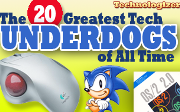
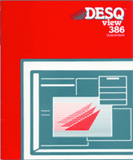
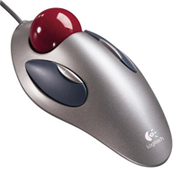

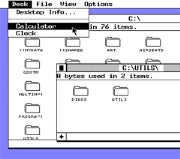
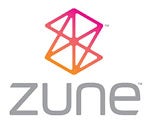
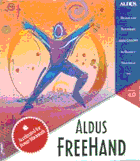

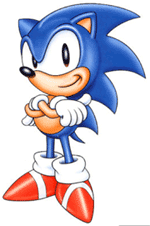
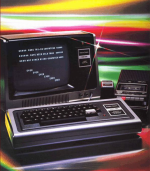
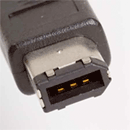
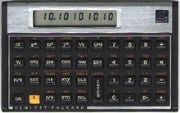
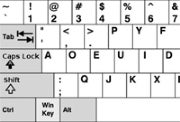

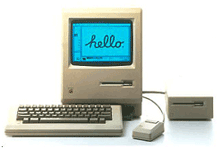
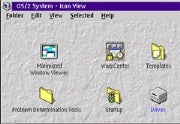
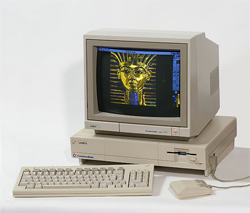
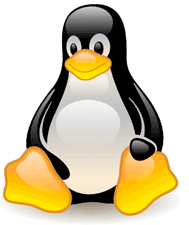
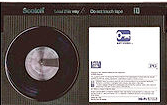
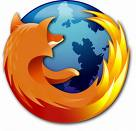
0 comments:
Post a Comment